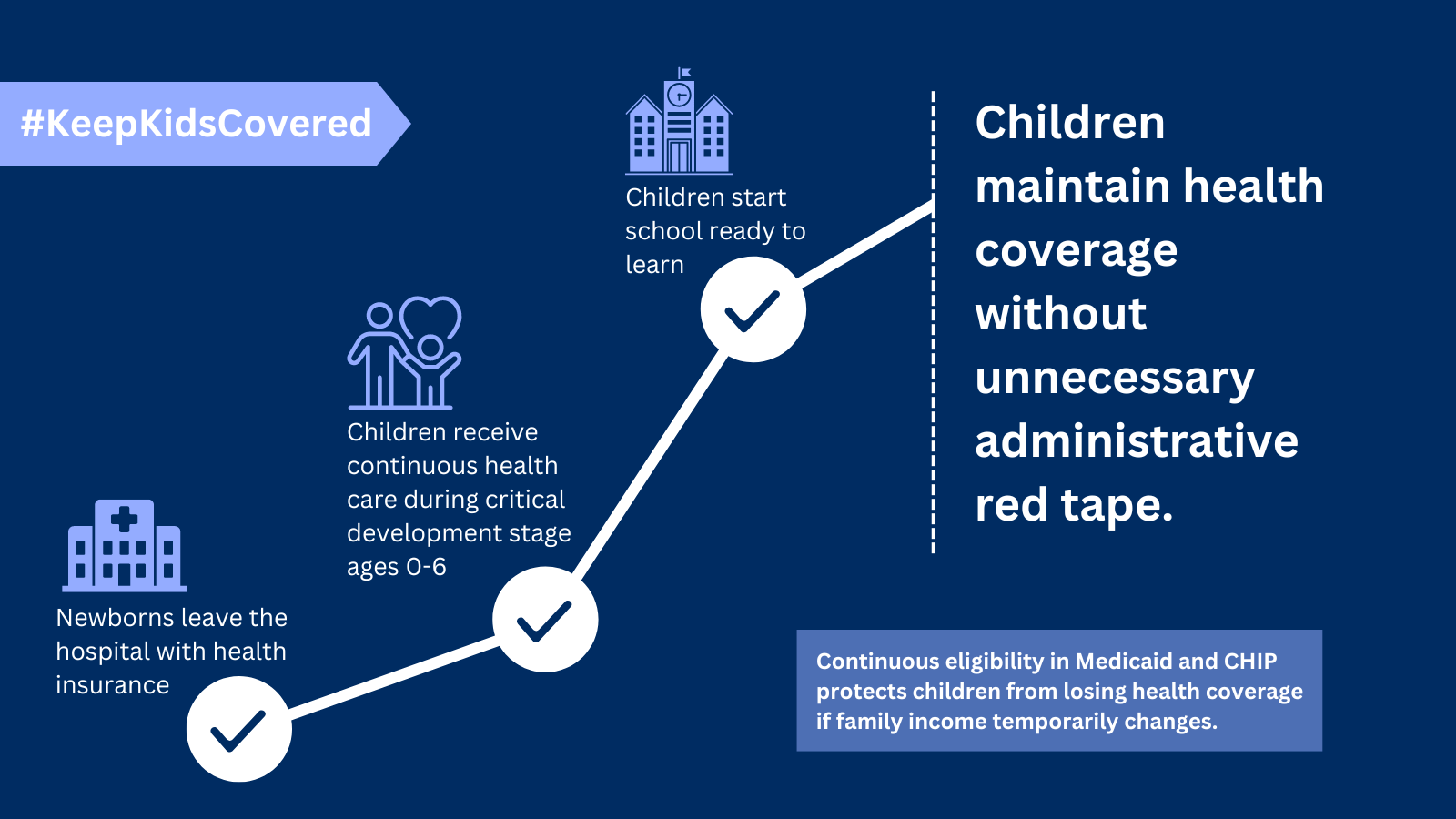Maternal & Early Childhood Health
-
Four years of RAPID Survey Project Highlights Young Families’ Biggest Stressors: Child Care, Housing, Health Care
Last month, Stanford Center on Early Childhood released its four-year anniversary report on findings of its RAPID Survey Project. The report detailed the top concerns and stressors felt by parents and providers of young children across the country. The leading concerns? Child care, housing, and health care. The RAPID Survey Project began in response to…
-
Maternal Mortality Rates Decreased in 2022, but Disparities Persist
Last month, the Centers for Disease Control and Prevention (CDC) released new data indicating that national maternal mortality rates (MMR) fell significantly in 2022. Compared to 2021, the number of maternal deaths fell from 1,205 to 817 overall and the rate fell from 32.9 to 22.3 deaths per 100,000 live births. These new data suggest…
-
Federal Task Force Releases National Strategy to Improve Maternal Mental Health Care, Includes Medicaid Policies
This week the Task Force on Maternal Mental Health released a national strategy to improve maternal health care and an accompanying report to Congress. The federal interagency task force was created under the Consolidated Appropriations Act, 2023 for purposes of identifying, evaluating, and making recommendations to coordinate and improve federal activities related to addressing maternal…
-
Postpartum Coverage and Benefits Key, But Merely the Start of Needed Medicaid Work to Address Maternal Health Crisis
Federal and state leaders have prioritized maternal health in Medicaid in recent years with welcome (if overdue) attention. As Say Ahhh! readers know, the new state option to extend postpartum coverage to 12 months for all pregnant women in Medicaid has been adopted or is in progress in all but two states (AR and WI)…
-
New Research Links Postpartum Medicaid Coverage to Increased Mental Health Care
A new study in this month’s issue of Health Affairs offers additional insights into the impact of postpartum Medicaid coverage on access to care. In short: continuous postpartum Medicaid coverage increased stability, access, and affordability to outpatient mental health and prescription medication treatments for perinatal mood and anxiety disorders compared with those who transitioned to…
-
State Momentum on Medicaid Doula Coverage, Rate Increases
Doula care continues to be a hot topic as our nation struggles to address the current maternal and infant health crises. Research has shown that doulas help reduce the risk of adverse birth outcomes, reduce infant mortality rates and help improve perinatal mental health. Access to doula care services can be out of reach for…
-
New ASPE Report: 17 Million Children Live in States That Could Benefit from 12 Months Continuous Coverage in Medicaid and CHIP
One commonsense policy change can make a huge difference in the lives of children. A new federal report released yesterday finds that the 12-month continuous eligibility period for children in Medicaid and CHIP that took effect on January 1, 2024 will protect more than 17 million children who live in states that previously did not…
-
Webinar: State Medicaid Opportunities to Support Mental Health of Mothers and Babies During the 12-Month Postpartum Period
Forty-six states and the District of Columbia have either implemented or plan to implement the state option to extend Medicaid coverage to all enrolled pregnant people from 60 days to 12 months following a pregnancy. In January, Georgetown CCF released State Opportunities to Support Mental Health of Mothers and Babies During the 12-Month Postpartum Period,…
-
Medicaid Expansion in Georgia would Improve Maternal and Infant Health Outcomes
One in ten Georgians report knowing someone who has died through pregnancy-related causes. An estimated 57% of Georgians have experienced or know someone who has experienced maternal morbidity. Over 70% of Georgians believe that prioritizing improvements in access to health insurance coverage would help to reduce maternal mortality. These statistics were shared at the…
-
Multi-Year Continuous Eligibility for Children
As of January 1, 2024, all states are required to provide 12 months of continuous health coverage for children in Medicaid and the Children’s Health Insurance Program (CHIP). This reduces the risk of eligible children losing coverage due to administrative barriers or temporary fluctuations in family income. In 2022, Oregon became the first state approved…
-
CCF Comments on Questions from the Task Force on Maternal Mental Health
The Georgetown University Center for Children and Families submitted the following comments to the Office on Women’s Health at the U.S. Department of Health and Human Services regarding questions from the task force on maternal mental health. Read the Comments
-
New Report Outlines Opportunities for States to Leverage Medicaid to Improve Mental Health of Postpartum Moms and Babies
By: Anne Dwyer, Elisabeth Burak, Tanesha Mondestin, and Kay Johnson As we recognize Maternal Health Awareness Day, it’s a good time to take stock of where the U.S. stands in advancing maternal and child health. The relatively new state option to extend Medicaid postpartum coverage from 60 days to one full year provides states with…
-
CMS Previews State Grants to Transform Maternal Health, Grow Community-Based Workforce
Many states have been taking a closer look at the experiences of pregnant and postpartum people amidst the persistent maternal health crisis, including reaching communities– most especially Black and Indigenous women and other communities of color who have not fared well in the traditional, clinical health care system. We at CCF have championed states electing…
-
Zero to Six Continuous Coverage Proposed in Pennsylvania, Approved in New Mexico
As we hit the milestone of 3 million children losing Medicaid coverage in less than a year, movement toward multi-year eligibility in Medicaid continues to be a bright spot in the unwinding storm. Last week CMS approved New Mexico’s request to implement continuous coverage for children up to age 6, joining Oregon and Washington in…
-
Can MMRCs Do More to Inform State Medicaid Maternal Health Efforts?
As rates of maternal mortality have risen in the United States, maternal mortality review committees (MMRCs) have been an important tool to understand why these maternal deaths occur. State MMRCs consist of multidisciplinary representatives to review deaths that occur during or within a year of pregnancy. In our recent 12-state scan of Medicaid MCO performance…
-
Medicaid Managed Care: Transparency of Performance on Maternal Health
Our nation is in the midst of an ongoing maternal health crisis, one that particularly affects Black women. The causes are complex, the need to address them is urgent, and there is no single solution. One of many potential solutions that has not received enough attention is Medicaid managed care. Medicaid, the nation’s largest health…
-
Medicaid Managed Care, Maternal Mortality Review Committees, and Maternal Health: A 12-State Scan
Download the Full Report Introduction The United States is in the midst of an ongoing maternal mortality crisis and Medicaid, the health insurer for low-income Americans, has an important role to play in addressing it. Medicaid is the nation’s single largest maternity care insurer, paying for more than 40% of all births on average across all states,…
-
CMS Makes the Right Call on Utah’s Medicaid Waiver: Where Do Things Stand on Postpartum Coverage?
In a little-noticed but important action, CMS recently notified the Utah Medicaid agency that it should proceed with extending postpartum coverage from 60 days to 12 months under the state plan amendment (SPA) option rather than continuing to pursue its Section 1115 waiver request. At first blush, this seems like a distinction only the most…



















